
It’s 8am on a Monday morning, and daylight bathes Massimo Vitali’s office in a stark glow. Relaxed in a chair, the photographer is reflecting on a long career. ‘When I started, 22 years ago’, he begins, ‘no one would take a camera to a beach. But I watched this beach phenomenon from the beginning and you know, I was alone on that beach.’
As far as the careers of photographers go, Massimo Vitali's has been quite exceptional by any measure; a fact now being celebrated in a new London exhibition – his first UK solo exhibition in five years – at the Ronchini Gallery in Mayfair. After studying photography at the London College of Printing and embarking on a career in advertising and film, he was famously inspired to delve into his now-iconic Beach Series in 1995 after Silvio Berlusconi had won his first Italian election.
As far as observing and documenting the individuals that ushered the famously divisive former Prime Minister into power, few places could have represented an egalitarian common ground as dramatically as the Italian seaside. Vitali’s large format images of sun-kissed seascapes – often taken from soaring cliff tops or 20ft-high scaffolds assembled specifically for the task – revealed layer upon layer of intrigue in their dissection of the intricacies of human interaction and social detachment, and were to cement Vitali’s status as one of the most influential contemporary photographers alive.
‘I hope, I would like people to understand that there are different layers of significance’, he explains of his images. ‘And 99 per cent of the beach pictures that I see around, there is only one layer of significance’.
The idea that the legacy he leaves will be one of aesthetics and one-dimensional artifice is clearly one he loathes. ‘I think I always had a problem that so many people – even the people that buy the pictures, even the collectors – don’t really go to the bottom of the story. And sometimes they spend quite a lot of money and they don’t really go to the core of what I’m really trying to say.’
He continues, ‘When somebody asks me where a picture was taken, for me it’s just a disaster. It’s defeat. Because the pictures are not about the place. They’re not about the colours. They’re not about beauty or prettiness. They’re about us, they’re about our society.’
Vitali makes a compelling argument. A series he shot for TIME in 2015 saw him spend several days at the Nickelsdorf refugee camp in Austria, observing the overwhelming despair evident as thousands of Syrians tried to cross into Hungary and board trains further into Europe. Most notably, the sheer size of his images captures the scale of the humanitarian crisis in Europe unlike any other had managed to convey.
His 2013 images, too, of the chasm between the haves and have-nots in São Paulo’s poorest favelas and affluent suburbs, add to this notion. Images from these visits to Brazil – including 2012’s Lencois Achrome, shot in the empty sand dunes of Lençóis Maranhenses National Park – marked a departure for the artist, not only in their lack of visible humanity, but in their ability to capture a deep intrigue stemming from absence.
To this end, the exhibition will focus on work from his latter day oeuvre, collecting the later works of his 22 years of practice, spanning 2011 to 2014. ‘Normally when [people] think about me, they think about beaches,’ he says. ‘So the show is just to go against this boring beach idea’.
Vitali has also been quick to harness the power of the Internet, a tool that has shone a torch on his work. ‘I quite like [social media]. I like it because you have to be in the middle of the flow. Obviously I’m not so good at it, but I wouldn’t want to be without my Instagram account,’ he laughs. His best pieces are revitalised and imbued with new life on said account – vast images are divided into digestible sections, and throw individual faces, actions and emotions into focus, lending a greater immediacy and gravitas to his work.
He also plans to transform his personal website into a blog, that will host a weekly showcase in which his colleagues and peers – fellow photographers, critics, curators, art historians – will write about a single image from his archive, with the aim of providing some insight and analysis into his process and work.
Two decades of change is quite a long time, I offer. What is he most proud of? He leans back in his chair. ‘I’ve gone through every aspect of photography – commercial, photojournalism, movie – done everything, and I was never really happy with what I was doing,’ he explains. ‘And then you find, somehow, something that you would really like to do and all of a sudden, it’s real. All of a sudden, you do what you want to do and people say yes.’
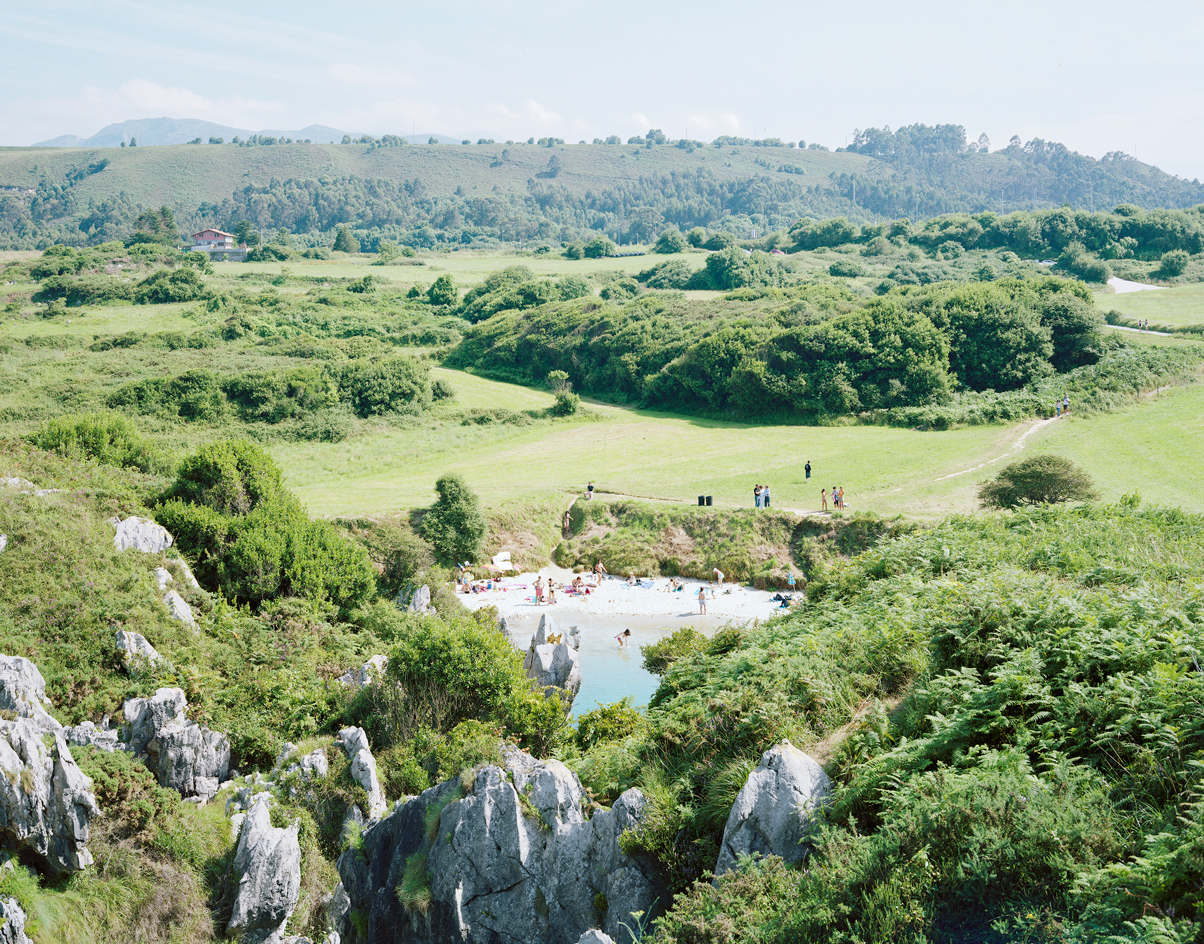
The Mayfair showcase marks the photographer's first UK solo exhibition in five years. Pictured: Gulpiyuri, 2011
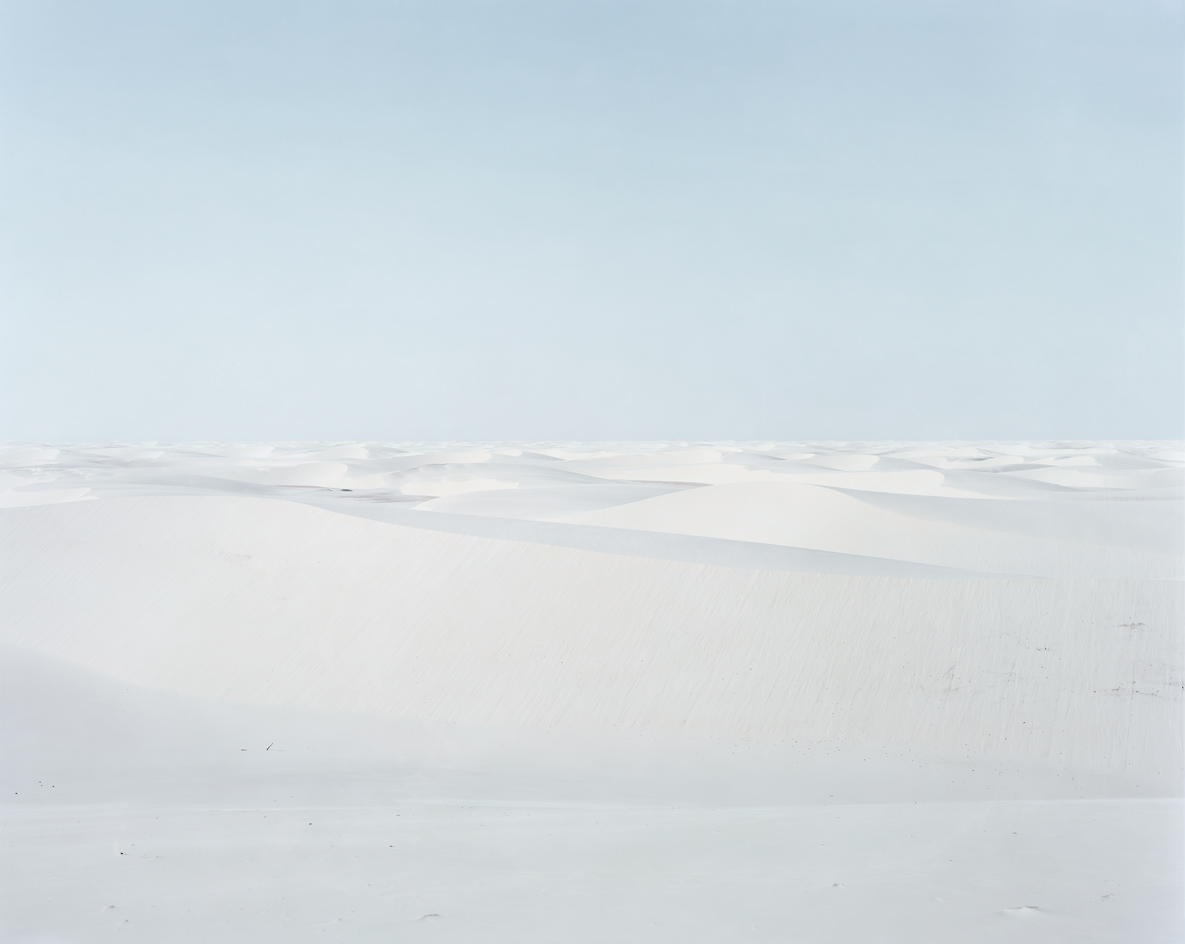
After studying photography at the London College of Printing and embarking on a career in advertising and film, Vitali was famously inspired to delve into his now-iconic Beach Series in 1995 after Silvio Berlusconi had won his first Italian election. Pictured: Lencois Achrome, 2012
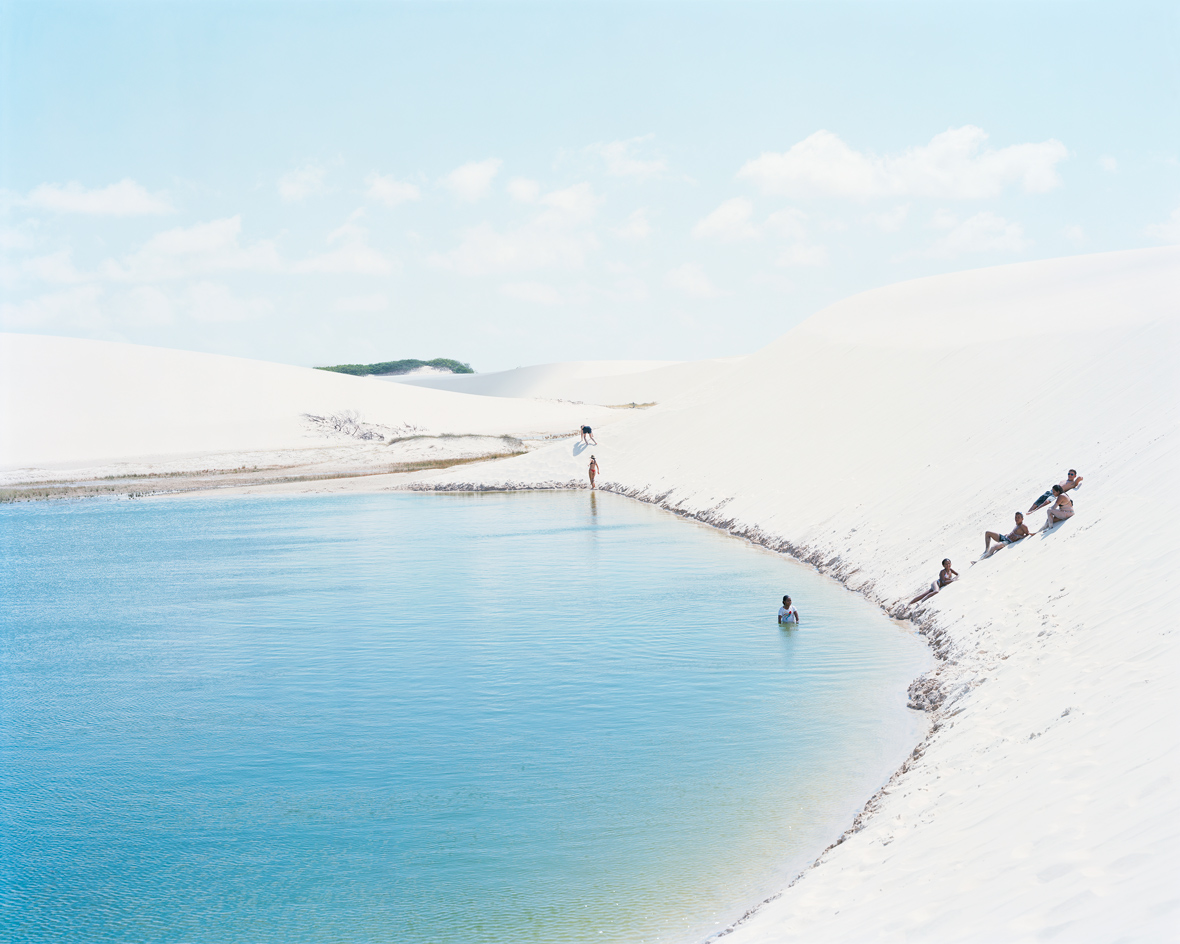
Vitali’s large format images of sun-kissed seascapes reveal layer upon layer of intrigue in their dissection of the intricacies of human interaction and social detachment. Pictured: Lencois Lagoa Do Peixe, 2013
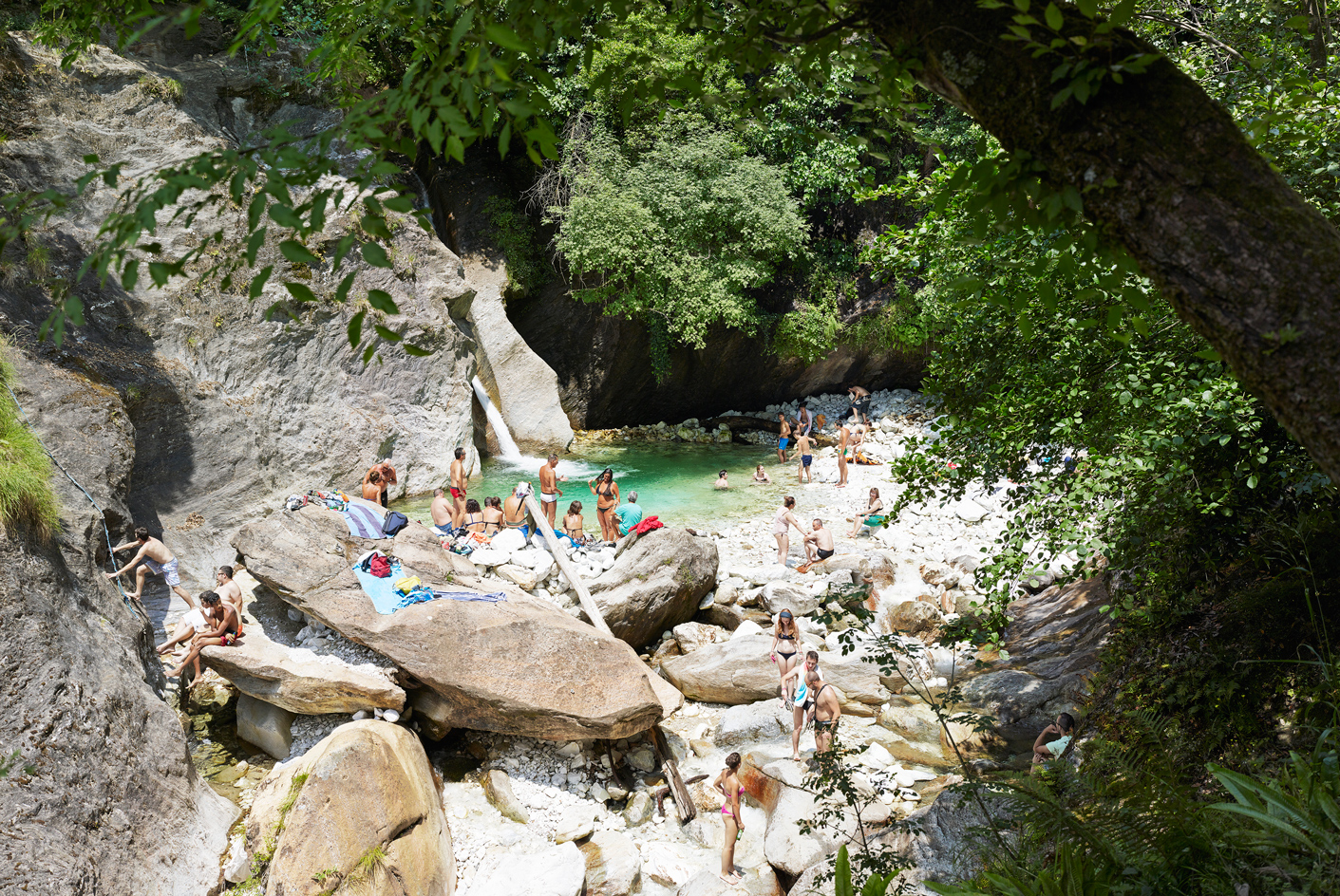
The images are often taken from soaring cliff tops or 20ft-high scaffolds assembled specifically for the task. Pictured: Malbacco, 2014
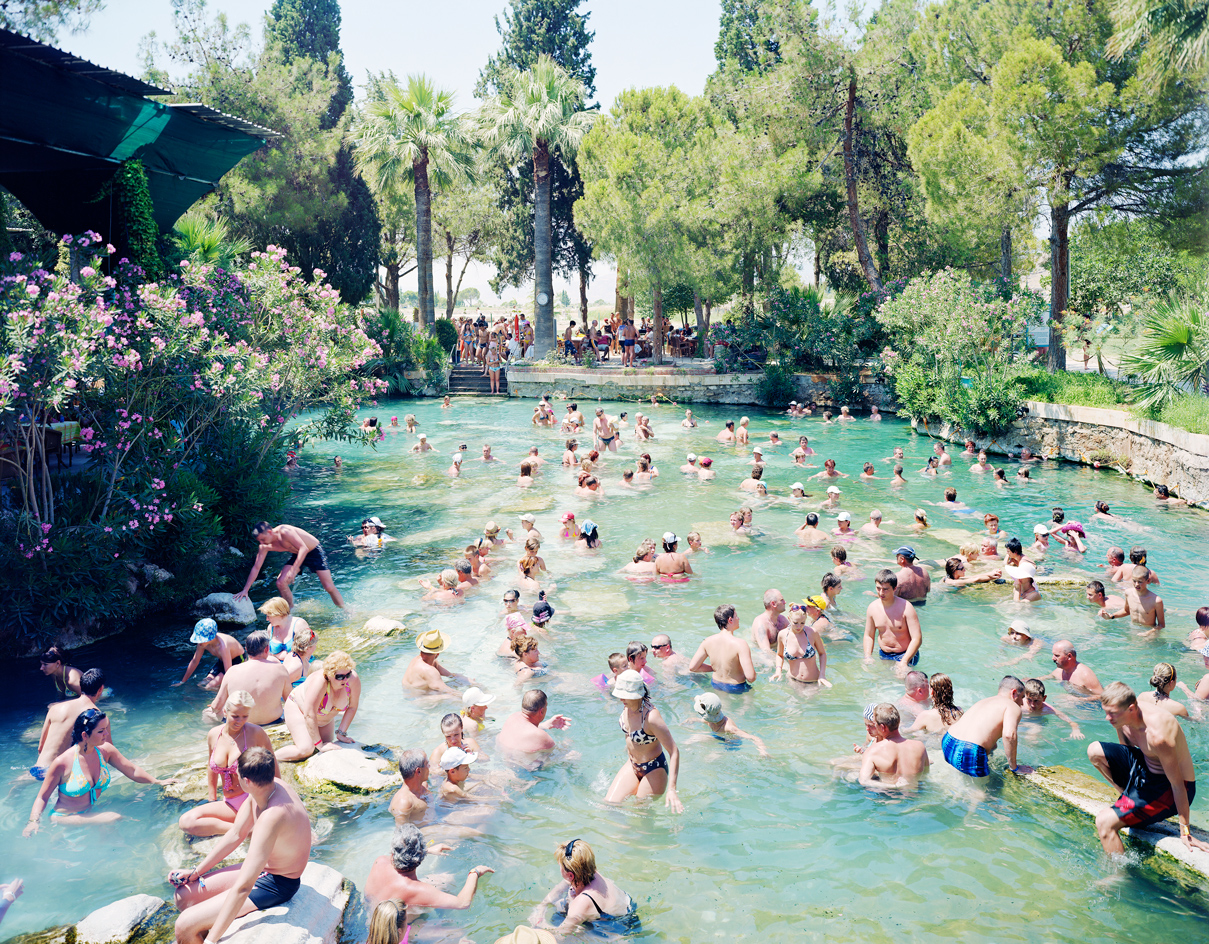
Massimo explains, ‘I hope, I would like people to understand that there are different layers of significance’. Pictured: Sacred Russian Pool Turkey, 2009
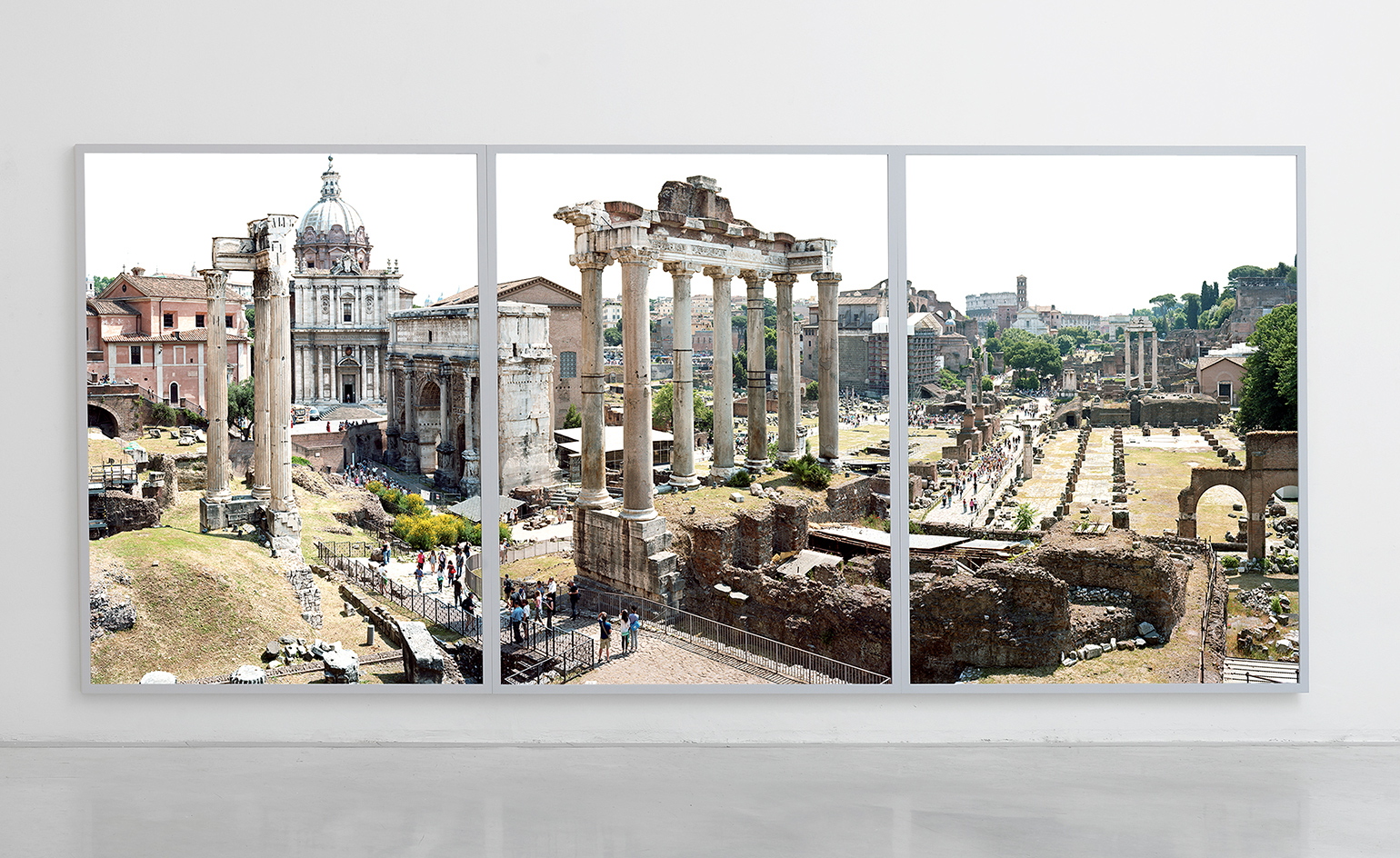
‘When somebody asks me where a picture was taken, for me it’s just a disaster. It’s defeat. Because the pictures are not about the place. They’re not about the colours. They’re not about beauty or prettiness. They’re about us, they’re about our society.’ Pictured: Trittico Forum, 2011
INFORMATION
’Massimo Vitali’ is on view from 20 May – 18 June. For more information, visit the Ronchini Gallery website
Photography courtesy the artist and Ronchini Gallery
ADDRESS
Ronchini Gallery
22 Dering Street
London, W1S 1AN
Receive our daily digest of inspiration, escapism and design stories from around the world direct to your inbox.